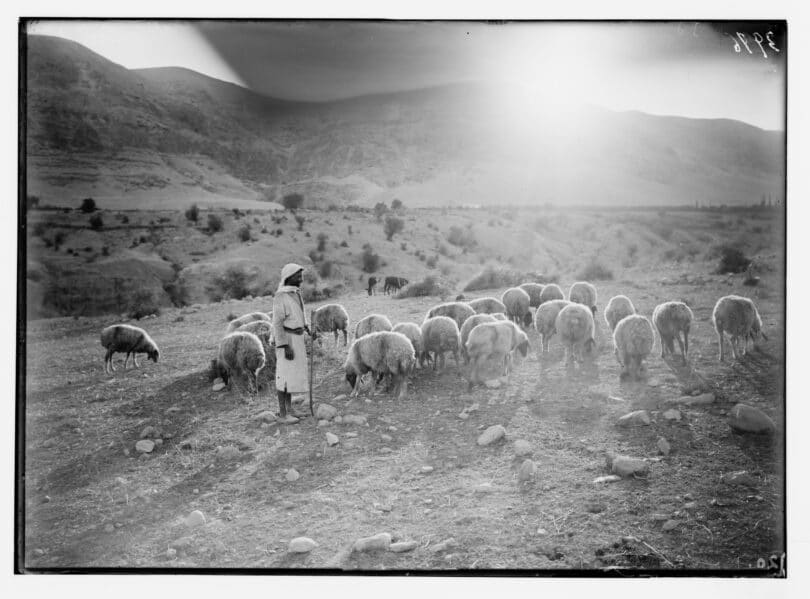by PETER LINEBAUGH

In 1958 the assistant headmaster did the Bible reading at the morning assembly of the Karachi Grammar School (Pakistan), founded in 1848 by the Church of England. The reading from Acts 17:23 concerned St. Paul’s declaration upon seeing the Athenian monument to an unknown God. “What you worship but do not know—this is what I now proclaim,” at which point I, 17 years old at the time, shouted the answer for all to hear: “Communism.”
As a child of both British and American empires I had come to this rebellious conclusion two years earlier at the Frankfurt Army High School. Based on study of The Communist Manifesto which I conducted in the library of the Officers Club at the I.G. Farben building, I was able to answer this ancient question posed in the Athenian agora by a man from Palestine.
I approach the wars in Palestine neither as an Arabic nor a Hebrew scholar or even as one knowledgeable to other forms of life in the region—olive, almond, fig, citrus fruits, sheep, cotton, or the grains like wheat. I come as a student, with a life-long admiration for the radical, abolitionist, and antinomian traditions: Jesus and the prophets, Karl Marx, Gerard Winstanley, Thomas Spence, Olaudah Equiano, the IWW, Frederick Douglass, Shunryu Suzuki, Elizabeth Poole, Ann Setter, Ivan Illich, Malcolm X, William Blake, Silvia Federici, E.P. Thompson, Robin Kelley, Manuel Yang, Michaela Brennan, Midnight Notes, Counterpunch, and Retort; and then I became an historian of all the above with particular interest in the commons. As Marcus Rediker and I said in the introduction to the Arabic translation of our Many-Headed Hydra, Herodotus, “the grandfather of history,” explained that Palestine lay between Phoenicia and Egypt.
Besides going to Athens, a home of philosophy (philia = love, Sophia = goddess of wisdom), Paul went to gatherings where they had “everything in common” (Acts 4:32). Jubilee was another Biblical thing I could cotton on to because I love its principles of land back, freedom now, no work, debt forgiveness, and rest for revered mother Earth. It all seems to me a beautiful combination of revolution and relaxation. Paul became a follower of Jesus who was thrown out of his hometown and almost killed for proclaiming jubilee right now. He called for rest and forgiveness. The only economic basis of such a thing is the commons. The struggle in Palestine helps us see this.
I believe that the musha’a (community-owned agricultural lands), like similar practices anywhere else in the world, can help us realize a world based on just conditions of mutuality, name it as is your wont: true communism, the cooperative commonwealth, the commons. The renewed thinking of the commons was born of struggles against the new enclosures of the neoliberal era and inspired by the commoning practices of autonomist Zapatista communes in Chiapas and its defense of the ejido. The commons is now understood as a key conceptual breakthrough in orienting visions and pathways to postcapitalist futures. The commons also marks the radical escape from the paralyzing misfires and legacies of modernist state socialisms (Ray 2024, see especially Federici 2019).
Monthly Review Online for more
